SONG OF THE YEAR
UAE National Anthem
https://www.youtube.com/watch?v=o7KpDBYYB4Q
SONGS OF THE WEEK
Arabic Song
Batta
https://www.youtube.com/watch?v=tHSOJanLnuo
To listen to the song of the week for our Babies, kindly click on the link below:
Five Little Monkeys
https://www.youtube.com/watch?v=LrM62pv56o0
To listen to the song of the week for our Playgroup I, kindly click on the link below:
Once I saw a Little Bird
https://www.youtube.com/watch?v=obSaQxGPU7E
To listen to the song of the week for our Playgroup II, kindly click on the link below:
Animals in Ocean
https://www.youtube.com/watch?v=AskWKTiyLmU
To listen to the song of the week for our Foundation Year, kindly click on the link below:
Dinosaur Song
https://www.youtube.com/watch?v=yhQkUowpNNo
IPC Leadership & Management
in Early Childhood Program
With great pride we announce that Ms. Ziaara, our nursery founder and director has received the 'High Achiever Award' from AIM Middle East for setting the record of the highest marks achieved by a learner in IPC's Leadership and Management Program.
We also bagged the 'Commitment To Professional Development Award' for outstanding commitment to professional development and for continually supporting and believing in staff training.
Trip to RAK ZOO
Our little ones had a blast. They enjoyed their trip to RAK ZOO and were so excited. Since the time they learnt about the trip, they could not stop talking about it. All were present and dressed in their proper nursery uniforms. During the trip, they were so engrossed in observation, interaction, and imitation. After the trip, they could not stop talking about their experience and within minutes after boarding the bus, they all fell asleep. A day well spent with animals.
OUR BABIES
Because
little babies have limited language comprehension, memory, and attention spans,
the best strategies to employ early on are more about damage control than about
teaching an actual lesson. Distracting (helping him move from a not-so-good
activity to something better) and ignoring (just what the name implies) are two
very effective strategies. Of course, you never want to ignore a
behavior that's potentially dangerous, but looking the other way when your
7-month-old cheerfully pelts his 59th Cheerio from his high
chair is a smart move. It's essential to remember that very
young children are utterly guileless; your Cheerio pitcher isn't trying to
annoy you. He's learning how to control his hands and beginning to understand
the concept of cause and effect. As annoying as this behavior is, it's
important not to get upset or overreact. Your best bet is to maintain a
calm demeanor and carry on with what you were doing.
When your baby starts to
crawl, around the 8-month mark, it's time to think about setting limits.
Suddenly everything -- from the knickknacks on your side table to those rolls
of toilet paper under the bathroom sink -- are big no-nos.A child this age only
wants to explore (he has no concept of what he should or shouldn't do), so if
you don't want him to touch something, place it out of his reach through
childproofing and let child-friendly items take center stage. Experts say this
is the best way to help your child stay out of trouble and makes it a lot
easier to follow the rules.
Use other techniques
to reinforce the lesson that some things are off-limits, as Cristina Soto of
New York City does. "Starting at around 8 or 9 months, every time my
daughter Sonia got near an outlet, I'd say 'Aah aaah!' in a playfully scary
voice so she'd stop and look at me," says Soto. "I kept doing it.
After a while she'd cruise over to an outlet, point, and say, 'Aah aaah!' to
me."
OUR PLAYGROUP I
Around 12 – 24 yrs of age, your
child's communication skills are blossoming, so you can start explaining basic
rules -- don't pull kitty's tail -- for example. You can also begin using the
word no judiciously, in serious situations. Too many could wear out the word
and eventually render it completely useless.
Your child's
physical skills are coming into full play, too. Your new little walker will
likely be thrilled with his freshly minted independence -- and frustrated that
he can't do all the things he'd like.
Enter the age
of tantrums. While tantrums require a quick response from you, these
emotional thunderstorms are a part of growing up and not a cue for harsher
discipline techniques, such as taking away a privilege or sending a child to
his room.
When tantrums strike,
"you need to know your own child," says Claire Lerner, a child
development specialist at Zero to Three. Some kids calm down quickly through
distraction; others need a hug. But if a tantrum is lengthy, remove your child
from the situation and gently explain what's going on ("We can't stay in
the store if you continue screaming") until he calms down.
Frustration that stems from your
toddler's inability to communicate effectively can lead to hitting or biting,
too. Disciplining such scenarios involves telling your child what not to do
quickly and simply and redirecting him toward an appropriate activity. For example,
if your child hits you because you've interrupted his play for a diaper change,
say, "We don't hit, it hurts," and give him a toy he can play with
while you diaper him.
OUR PLAYGROUP II
The two-year mark ushers in twos' programs, preschool, and play
dates, which are great for your child's socialization skills but also present a
new set of discipline problems. Sharing -- toys,
time, and attention -- is difficult at this age. What complicates matters
further is that folks (and kids!) outside your family may end up in the path of
a toy-snatching toddler who happens to belong to you.
Toddlers understand
easy commands, empathy, and cause and effect, so you can now employ these
concepts when you discipline. If your child grabs a crayon from his friend, for
example, you can say, "We don't grab toys. Taking Billy's crayon hurts his
feelings," and then give him a similar crayon to play with.
A key to
disciplining toddlers and preschoolers is to keep things very simple. According to a study conducted by Susan G.
O'Leary, PhD, professor of psychology at The State University of New York at
Stony Brook, those moms with long reprimands were less effective than those
with short and direct ones.
Susan
Simmons of South Riding, Virginia, the mother of 2-1/2-year-old Mia, agrees.
"When Mia hit 2, I started giving her long explanations as to why she
couldn't do something, but I realized she didn't understand. Now when she wants
to have an ice pop before dinner, I just say 'You can't have one now,' and
leave it at that."
OUR FOUNDATION YEAR
While your
preschooler has a better understanding of language skills, it’s important to
keep your communication brief and effective. Skip the lengthy lectures and
establish good communication habits with your child now. Here are several
effective ways to communicate with your preschooler:
·
Keep it short and sweet. You don't need to get into a lengthy discussion about why a
behavior is unacceptable. With young children, it's best to keep things simple
and specific.
·
Establish healthy communication practices. Create strategies that will help you and
your child talk about behavior problems and solutions. For example, you can
have a special place in the house where you and your child address important
subjects. You could also make it a house rule that conflicts and problems are
discussed after a cool-off period when solutions can be better addressed in a
calm manner.
·
Offer limited choices. Offering unlimited choices, like asking, “What would you like
for dinner?” can lead to conflict when a child lacks the skills needed to make
good choices. Offer two good choices to pick from, such as “Would you rather
clean your room before or after dinner?” Either choice is a good answer as long
as it gets done.
·
Talk about alternatives. When you’re child misbehaves, teach them alternative ways to get
their needs met. If they throw a toy when angry, talk about other
strategies that could have helped them address those feelings. Rather than
simply punishing your child for misbehaving, help them make better choices in
the future. Ask questions such as, “If your brother grabs your toy, what could
you do instead of pushing him?”
·
Give effective instructions. Giving good directions increases the
chances your child will listen. Place a hand on your child’s shoulder or gain
eye contact before you attempt to give directions. After you give instructions
(one step at a time), ask your child to repeat back what you said to ensure
they understand.
AFTERNOON KIDS' CLUB




















































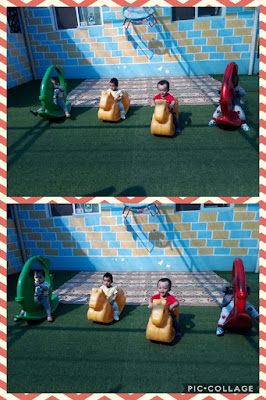











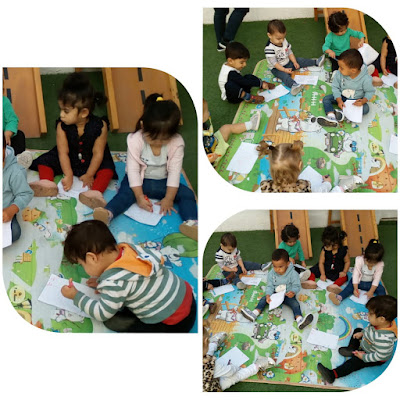











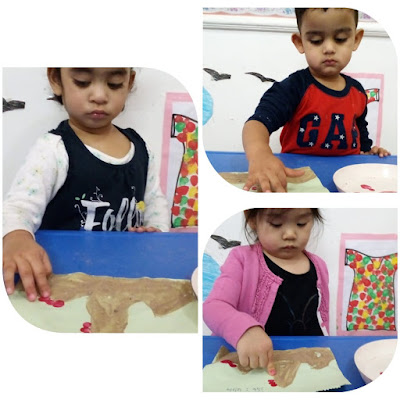



















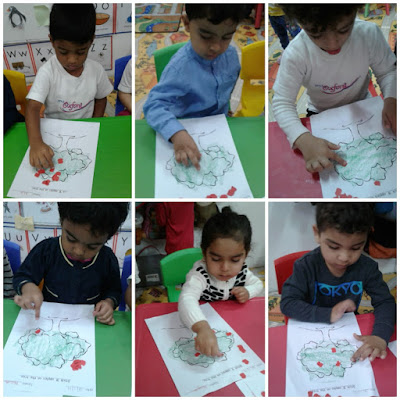


























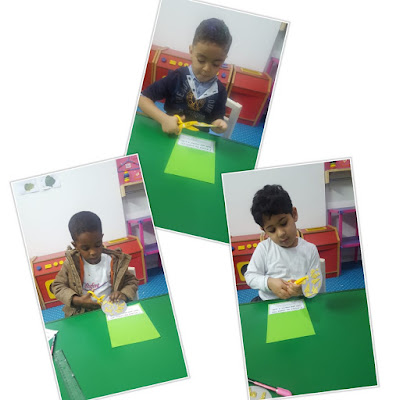






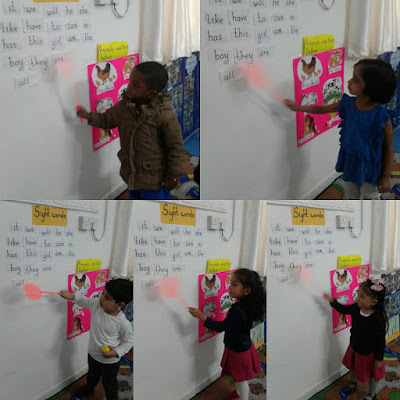







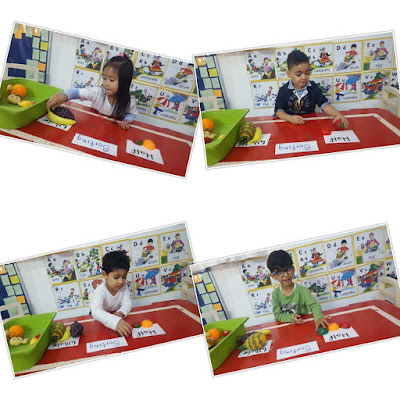



















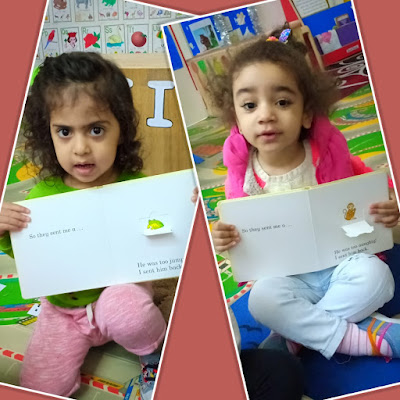













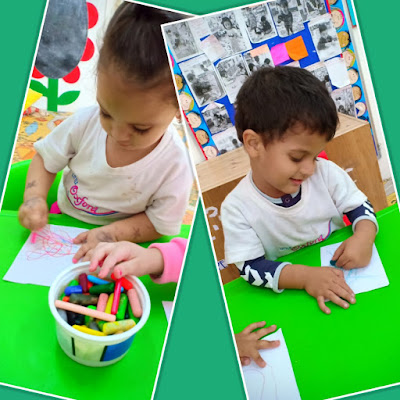









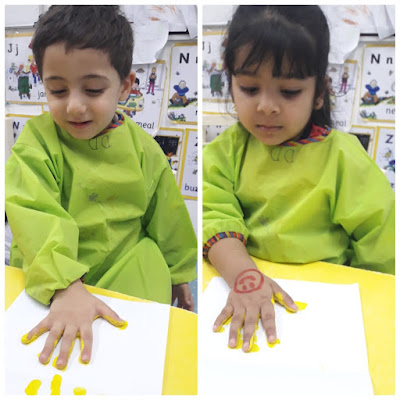


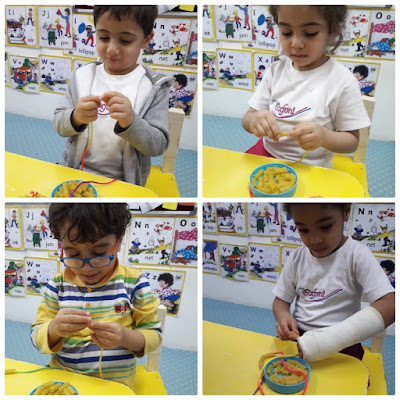

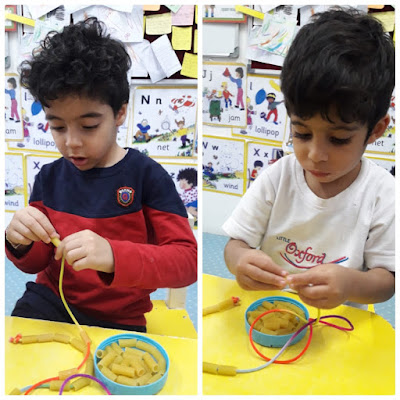
No comments:
Post a Comment